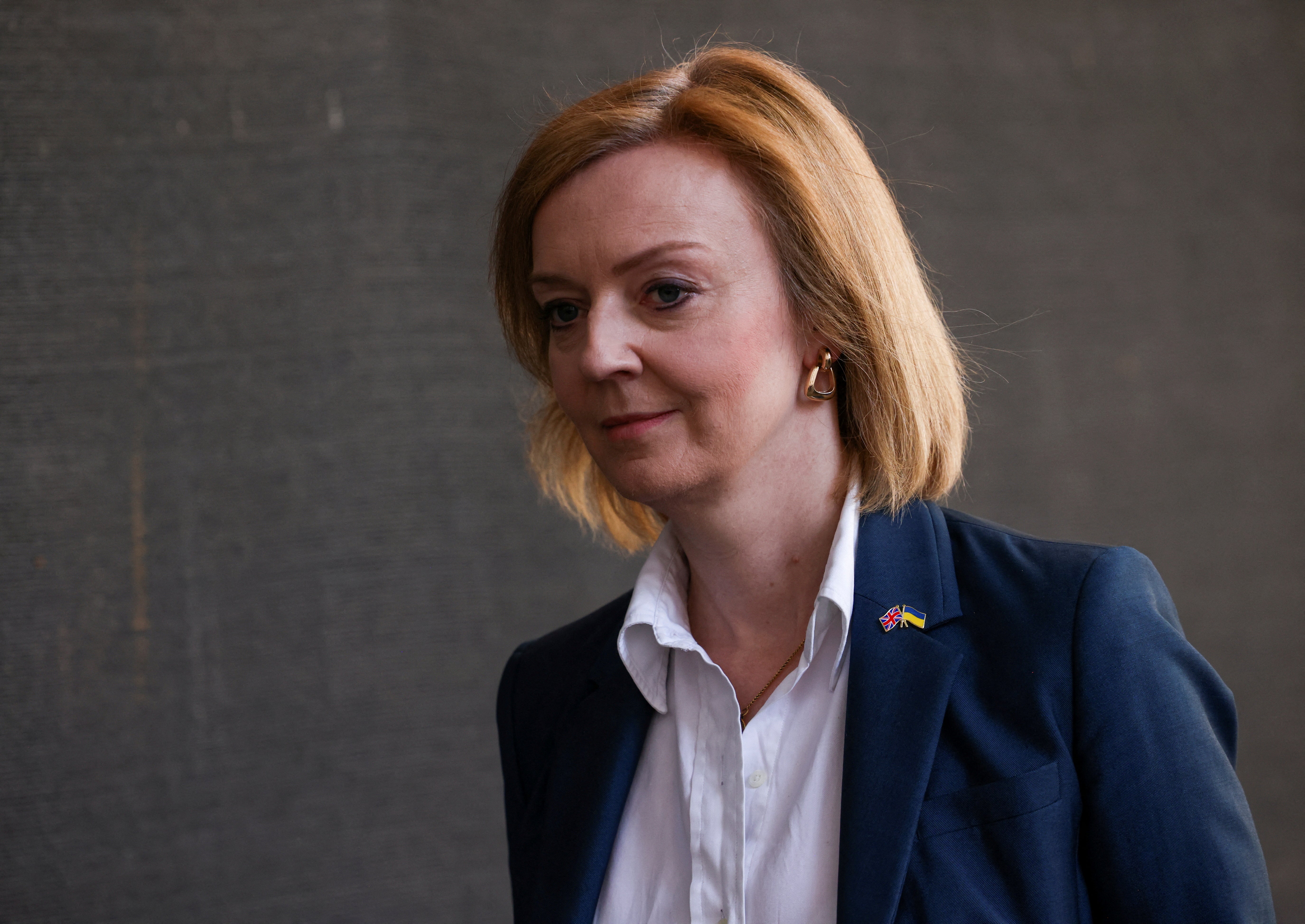The two British hostages put the UK in an impossible situation
Editorial: The foreign secretary should not give way on policy or on support for Ukraine, despite the difficult position she is in

To all intents and purposes, the Russians now hold two British hostages in all but name.
Hostage negotiations with rogue states, such as Russia and its puppet ally the Donetsk People’s Republic, are never easy, but Liz Truss faces unusually severe obstacles in trying to secure the release of Aiden Aslin and Shaun Pinner.
The foreign secretary has a month before the death sentence handed to them by a kangaroo court is due to be carried out, though of course they can be granted temporary “reprieves” at the whim of Russian president Vladimir Putin. Ms Truss will soon be faced with the most serious challenge of her career, and she knows full well how sadistically the Russians will toy with their prisoners’ lives, and how hard a bargain they will try to secure.
Needless to say, the Russians won’t be paying much attention to the Geneva conventions or to universal human rights. It is perhaps surprising, given all that has happened since the invasion in February, that the UK and Russia still maintain full diplomatic relations, with ambassadors resident in Moscow and London.
Yet Ms Truss, even if she wished to, cannot deal with the Russians directly, because formally, legally and indeed in terms of substance these men were serving in the Ukrainian armed forces, and she has to allow her Ukrainian counterpart, Dmytro Kuleba, to try and extract them, presumably in return for Russian or Chechen prisoners of war.
Ms Truss cannot intervene directly with Russia because it would imply that the men were acting as members of the British armed forces or as mercenaries, and her involvement would be used for propaganda purposes by the Russian Federation.
The fog of war also makes matters more difficult.
Given that Ukraine is in a battle for national survival, and Vladimir Putin is fighting with other people’s lives for imperial pride and his own aggrandisement, the fate of two Britons is not going to command the same amount of attention as in Whitehall. Events on the battlefield and in the wider world, such as tightening of sanctions and supply of military hardware, can lead to sharp changes of mood and misunderstood signals of intent.
President Putin’s disregard for human life, including his own child conscripts, is well documented, and his only interest in hostages is what he can get in return. If he detects that they are tactically worthless to him, they will either be left to rot in appalling conditions or murdered.
Ms Truss and the prime minister will need to decide what, if anything, they are prepared to sacrifice in order to get the captive soldiers released. If, for the sake of argument, the UK declared that it would no longer send supplies to Ukraine and was dropping the sanctions, then the hostages would be crossing the front line towards safety in a matter of hours.
To keep up to speed with all the latest opinions and comment, sign up to our free weekly Voices Dispatches newsletter by clicking here
If the government follows the traditional policy on hostage-taking and refuses to negotiate on that basis, then the outlook is grim. The Russians do not accept that they are prisoners of war, and they are not amenable to appeals to reason or international law, let alone to pleas for clemency.
So the foreign secretary is in an impossible position. She should not give way on policy or on support for Ukraine, but even if she asks the Ukrainians, who will be sympathetic, to offer the Russians a generous prisoner exchange there is no guarantee the offer will be accepted by the Russians. More likely that President Putin, his foreign minister Sergey Lavrov, and his Donetsk allies will prefer to play cat and mouse with her for a while.
The lives of these two men rest in her hands, even though she cannot act directly to save them. It will test her mettle and the resolve of the government. It is the price the UK has to pay for its loyalty to Ukraine.






Join our commenting forum
Join thought-provoking conversations, follow other Independent readers and see their replies
Comments